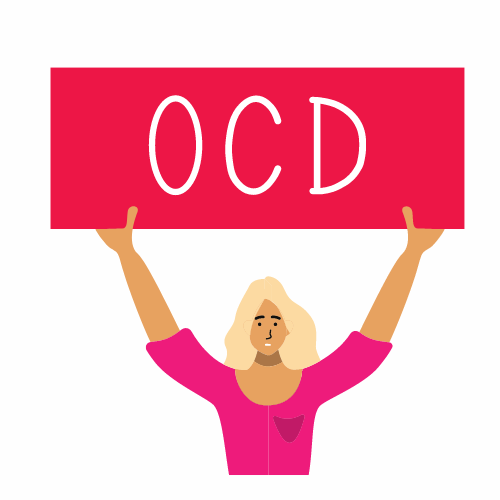Breaking the Mold: Unveiling the Complex Relationship Between Women and Perfectionism

Women and Perfectionism: A Balanced Approach to a Complex Issue
In a world that often nudges women to aim for perfection, it's crucial to approach the topic of perfectionism with sensitivity and understanding. As a therapist deeply interested in this area, I invite you to explore both the protective aspects and the potential challenges of perfectionism, especially considering the unique experiences of neurodivergent individuals.
Unpacking Perfectionism
The Protective Facets of Perfectionism
First, let's acknowledge that perfectionism isn't all bad. This trait often acts as a survival tool, helping women navigate a demanding world. Perfectionists are known to:
- Always give their best
- Become great team members at work
- Achieve goals that many only dream of
- Be organized and well-prepared for tasks
Recognizing these positive sides helps us foster a balanced view of perfectionism, understanding its role in helping us excel in various areas of life.
The Challenges of Perfectionism in Women
However, perfectionism can sometimes do more harm than good, trapping us in a relentless cycle of setting unreachable goals and fearing mistakes. It's also worth noting that neurodivergent individuals, including women with ADHD, may face even more complex challenges with perfectionism, a topic we will explore in depth in upcoming posts.
The Focus Areas of Perfectionists
Perfectionists often pour their energy into specific areas, such as work, physical appearance, and social relationships, among others. Being aware of these focus areas can help us understand how they might be serving or hindering our personal growth. Here are some more areas you might focus on becoming perfect in:
Perfectionism Focus Areas Checklist
- Work: Meeting all deadlines, maintaining a tidy workspace, continuously improving skills
- Bodily Hygiene: Regular grooming routines, maintaining a specific skincare regimen, consistent dental care
- Studies: Regular study schedule, meeting or exceeding grade expectations, participating actively in class discussions
- Physical Appearance: Following a consistent fitness routine, maintaining a particular weight or physique, investing in skincare and haircare
- Social Relationships: Keeping in regular contact with friends, avoiding conflicts, maintaining a pleasing personality
- Presentation of Documents: Ensuring error-free documents, maintaining a neat and organized format, using professional language and tone
- Spelling: Double-checking all written work, using spell-check tools, proofreading documents multiple times
- Dress: Following the latest fashion trends, maintaining a well-organized wardrobe, dressing appropriately for every occasion
- Way of Speaking: Articulating thoughts clearly, avoiding filler words, maintaining a pleasant tone of voice
- Romantic Relationships: Regular communication with partner, keeping a balance between personal and partner's needs, investing time and effort in maintaining the relationship
- Eating Habits: Following a balanced diet, avoiding overeating or undereating, trying to eat mindfully
- Health: Regular health check-ups, following a consistent exercise routine, maintaining mental health
- Domestic Chores/Cleanliness: Keeping a clean and organized home, regularly doing laundry, maintaining a cleaning schedule
- Time Management/Punctuality: Arriving on time for appointments, managing tasks efficiently, avoiding procrastination
- Correspondence/Mail: Responding to emails promptly, maintaining an organized inbox, keeping track of important correspondence
- Leisure Activities: Allocating time for hobbies, trying new activities, balancing leisure time with work
- Oral Presentations: Preparing thoroughly for presentations, practicing speech to avoid errors, engaging the audience effectively
Recognizing Perfectionism
Understanding the various types of perfectionism in women can be a stepping stone toward fostering a healthier relationship with perfectionism. These types include:
- Other-oriented Perfectionism: Setting high standards for others.(Include the checklist here)
- Socially Prescribed Perfectionism in Women: Believing that others have high expectations of you.(Include the checklist here)
- Self-oriented Perfectionism in Women: Setting high personal standards and engaging in self-criticism when these are not met.(Include the checklist here)
The Core of Perfectionism: Fear of Mistakes
In today's world, many women feel they need to be perfect to protect themselves from criticism and mistakes. Sadly, this drive for perfection stops them from trying new things and can make them feel alone and unhappy. It can even make existing mental health problems worse and lead to dangerous thoughts and behaviors. Letting go of the need to be perfect doesn't mean giving up on doing well; it means giving yourself the freedom to be who you truly are, without fear of making mistakes. It's time to encourage women to embrace their true selves, allowing them to live happier, fuller lives.
Self-Help Activities for Women Who Struggle with Perfectionism
Engaging in self-help activities can be a powerful way to start working on mitigating the effects of perfectionism disorder.
Exploring "Should" Statements
Begin by examining the "should" statements that govern your life. These statements often reflect the unrealistic expectations we set for ourselves. For instance, start by listing down statements like "I should always be successful" or "I must never make mistakes". Once identified, try to reframe these statements to more compassionate and realistic affirmations, such as "It's okay to have off days" or "Making mistakes is a part of learning".
Designing Behavioral Experiments
Engage in behavioral experiments to challenge your perfectionist beliefs. For example, if you believe that "I must keep a perfectly clean home", try experimenting with letting go of this belief for a week and observe how it affects your mental well-being. You might find that a little mess doesn't affect your overall happiness and might even free up time for other joyful activities.
Addressing Double Standards
Explore potential double standards in your expectations for yourself and others. You might be giving others more leeway to make mistakes while being too hard on yourself. Try to apply the same understanding and compassion you extend to others to yourself. Document instances where you notice these double standards and consciously work on aligning your expectations for yourself with those you have for others.
Changing Behaviors
Work on changing behaviors that fuel the anxious components of your perfectionism disorder. For instance, if you find yourself procrastinating often because of the fear of not doing a task perfectly, try adopting a "good enough" approach, where you aim to complete the task to the best of your ability without stressing over perfection. This approach can help reduce anxiety and promote a healthier work-life balance.
Conclusion
Navigating the complex world of women and perfectionism requires a nuanced approach, one that acknowledges both the protective aspects of perfectionism and its potential
Learn about ADHD and front-end perfectionism.
Check out this great APA article on perfectionism
Thanks for visiting! Feel free to email me at kristenlynnmcclure@gmail.com.
Medical information obtained from this website is not intended as a substitute for professional care. If you have or suspect you have a problem, you should consult a healthcare provider.




